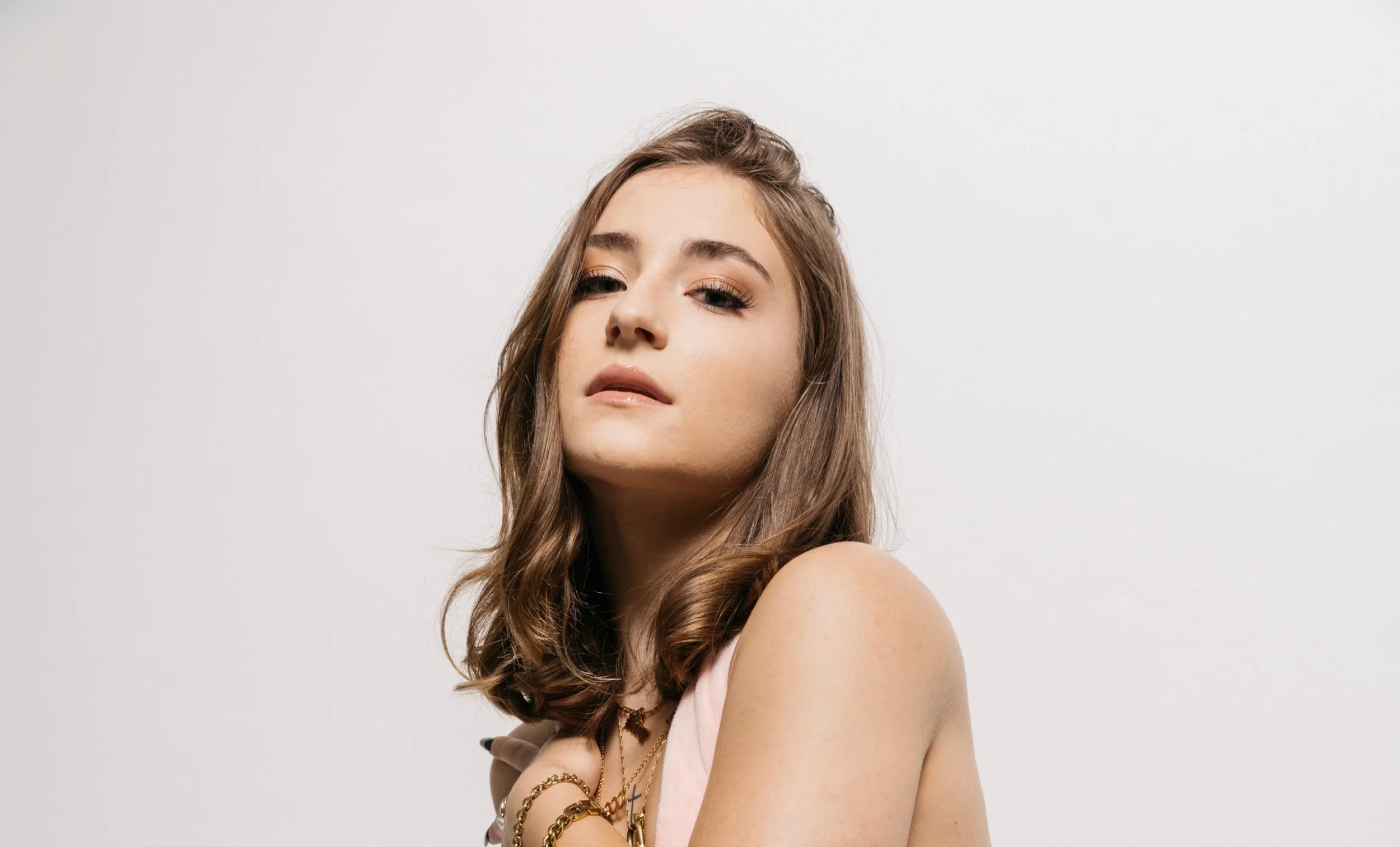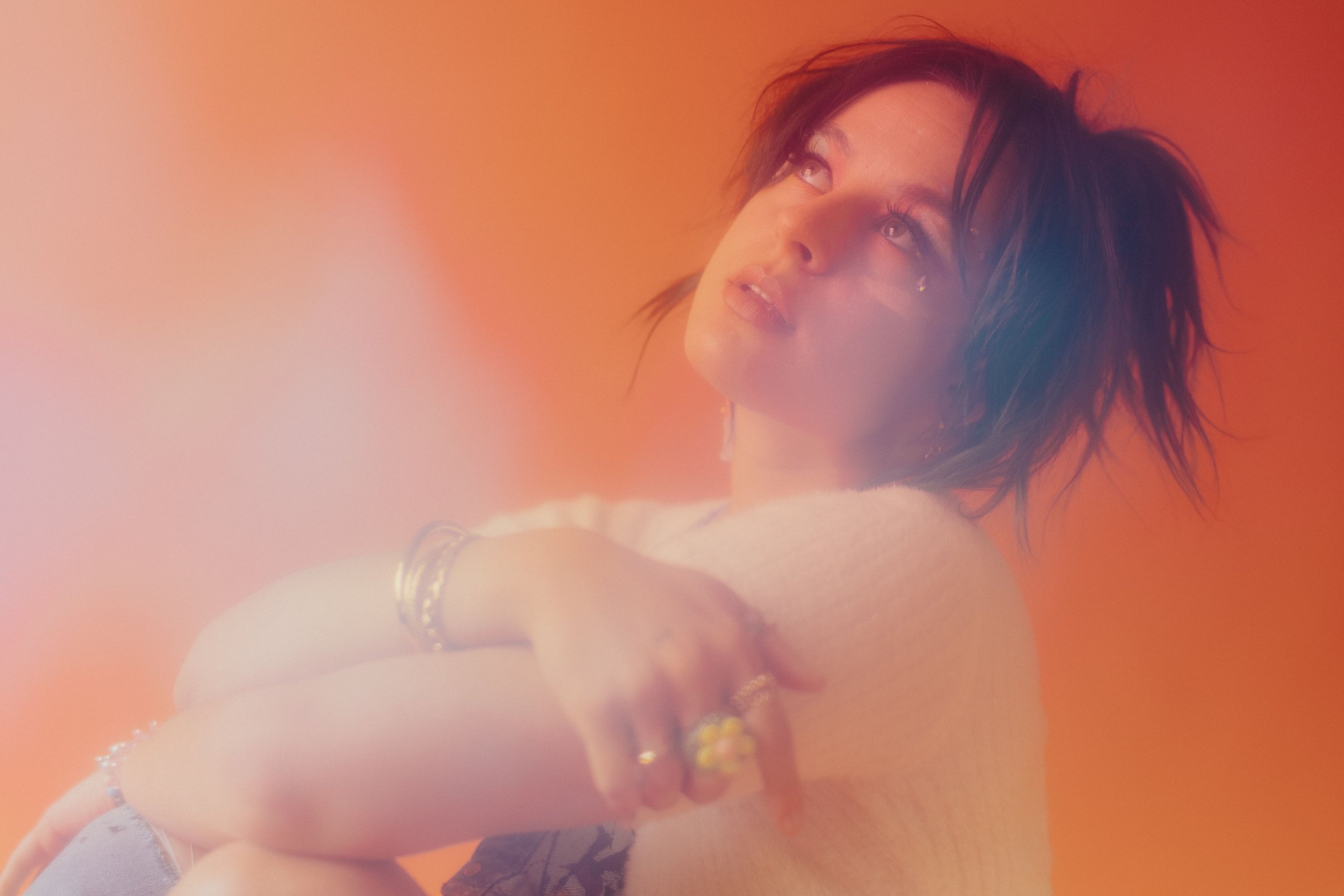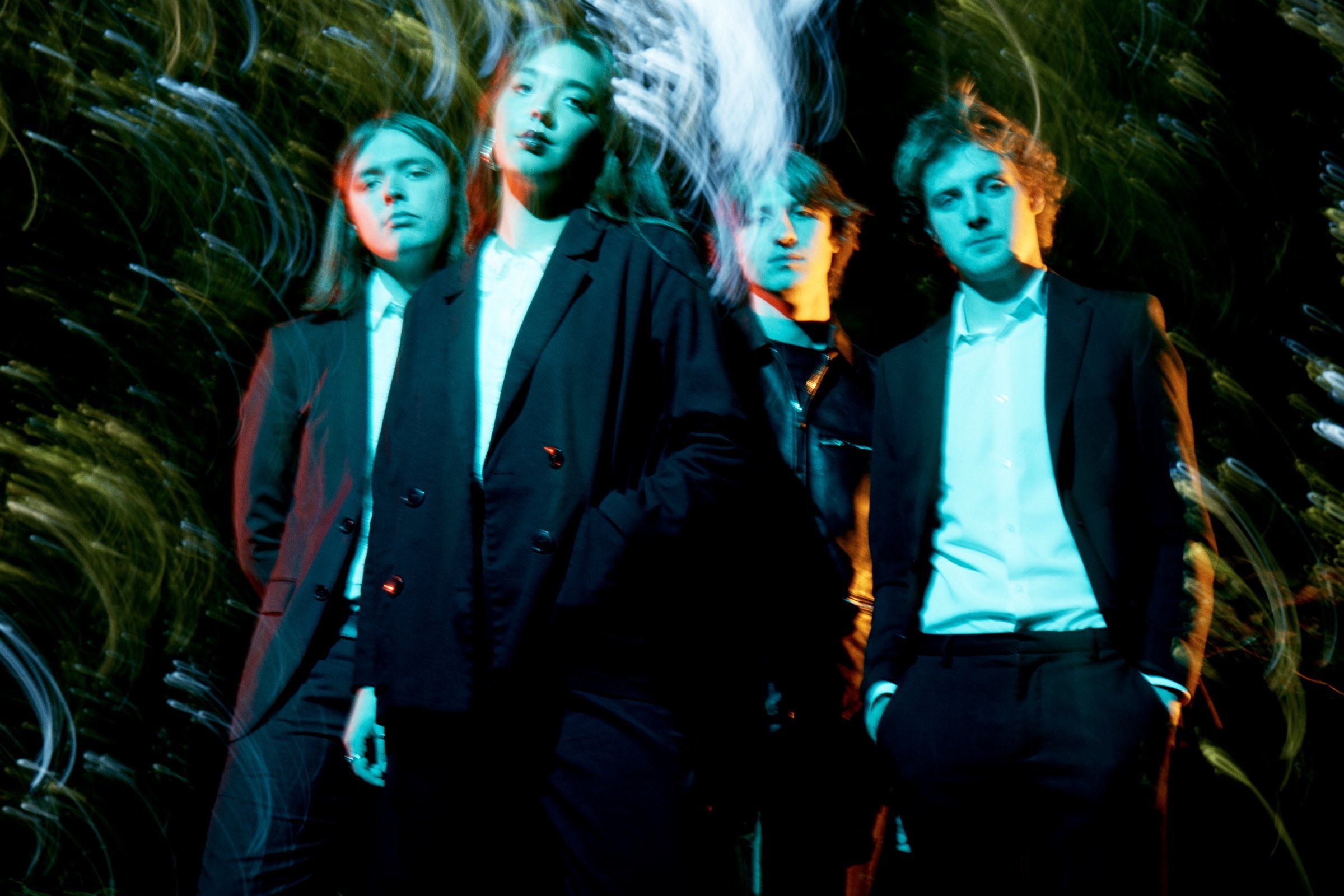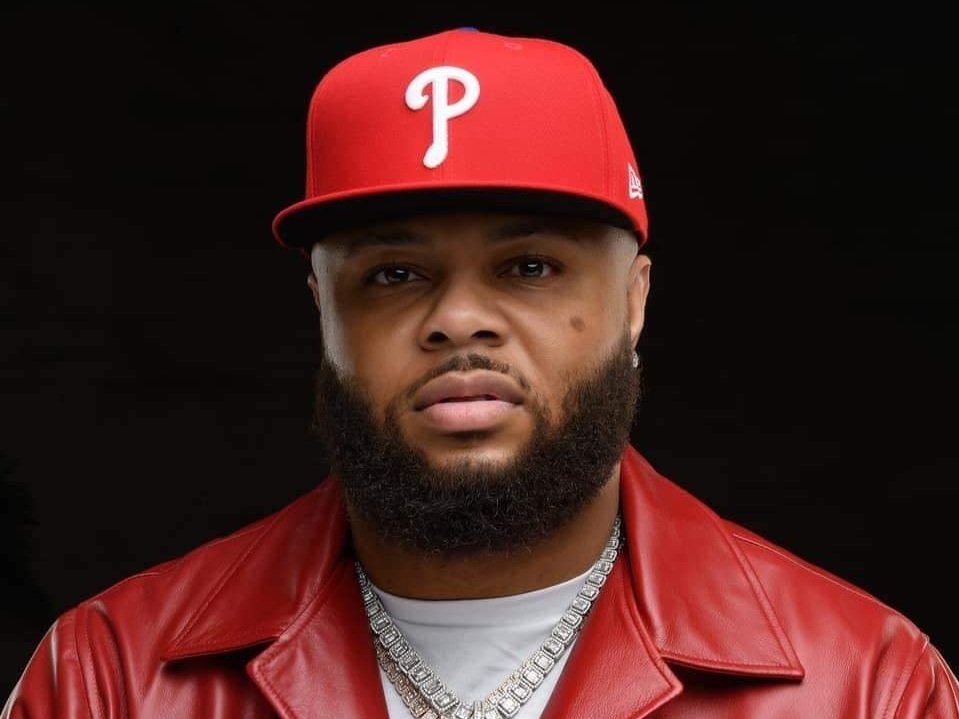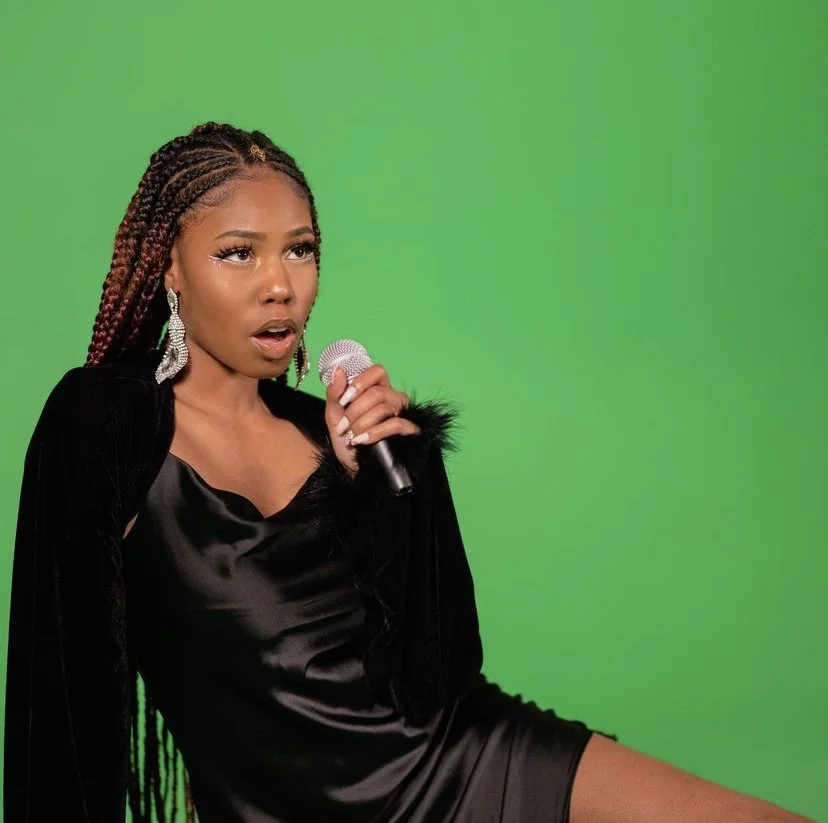Montana Janel the R&B Fairy
Montana Janel, aka the “R&B Fairy”, is a Filipina-American R&B pop artist from New York. Initially an actress, her credits include Broadway, Netflix, HBO, and Nickelodeon. From screenwriting, to film and media, to graphics…she does it all! Her goal is to lead her listeners on a spiritual journey and heal through her music.
Abby Martinez: So tell me know your origin story. How did you get started in the music industry?
Montana Janel: Yeah so I've been singing basically, and I know everyone says it, since I was born. I started singing I think I was around 8 years old and then my mom noticed that I could sing and (you know how filipinos are, we always sing at family functions) so she would have me sing. And then she put me in classes. I started doing a lot of musical theater and acting too. A lot of people don't know that but I started as an actress and a singer. Like an all-around performer. I did dance too. And then I did Godspell cast of 2032 on Broadway, I did Once on This Island at Papermill, I did a bunch of commercials. I did stuff with Tina Fey, Will Arnett, Megan Fox- I feel like I'm name-dropping now but this is my story! I went to high school at LaGuardia, the fame school. That’s where Nicki Minaj went. While I was there, I continued performing. I did mostly theater. I was scouted when I was 11. Going on auditions for everything. The biggest audition I would say was Moana. So my senior year of high school I spent a year with the team of Disney auditioning back and forth with Moana. And I was in the final two to voice her. And I didn't get it! It's totally fine. It was a crazy experience. In college, I went to school for musical theater again. That's when I decided to really pursue songwriting because I was tired of playing roles that I didn’t feel like represented me, especially as an asian woman. I would play a lot of stereotypes and was so sick and tired of the stuff I had to deal with. So then I went to school for film, actually, and then I did screenwriting. That's when I fell in love with writing even more. From screenwriting to songwriting and just telling stories in general. Then I just really delved into songwriting and took it seriously when I was around 19 and now I'm 22. I made a lot of music with friends in college. And now I'm just working with producers in New York. But that’s basically the gist of it I would say.
AM: Did being involved in multiple art forms help your music career?
MJ: I'm honestly so happy I switched majors from musical theater to film and media. I edit my own videos, I do all my own graphic design, the writing behind everything. Even just like the shot list for every video and stuff so I wouldn't trade it for the world. Even learning Premiere is so hard but going to school for it really helped.
AM: Can you tell me more about your creative process and what goes into creating music with healing intentions?
MJ: So I've always been very spiritual. I was always really shy to talk about it honestly until TikTok because I never thought that anyone thought that was cool. I never thought that when people listen to my music my spirituality would be tied in. But it's so cool that it is. In high school I started listening to India Arie and Lauryn Hill and they both have very healing type of music. In college, I worked at a spirituality shop part-time and that's where I learned some singing bowl stuff. I was in charge of teaching the customers how to use it. I'm not a pro at it. But my boss kind of was like a mentor for me in that sense. And then I started realizing how much music can heal people. Because when you listen to toxic music, you feel toxic. I love R&B and I was like “Okay I need to make a change in the music that I was listening to and also what I was making.” When I was 19 when I started songwriting, I was going through trauma. And in college, I was sexually assaulted. To me I was like “I can put this feeling into music and help so many girls out there”. Actually, one of the first songs I released is called “Dirty Boy”. It was about being sexually assaulted and in an abusive relationship. The response I got from that alone from so many girls, I just started crying at the messages they sent me. And I was like this is what I am meant to do. I don't care about how many followers I have. If I can put that emotion into a song, and help even just one girl or person, that is enough for me.
AM: How has religion and spirituality played a part in your music?
MJ: I read the bible and I took quizzes about what religion most resonates with you and I was really young at the time and I kept getting Buddhism. Then in social studies I remember learning about Buddhism and was really resonating with that more than anything. And that was a gateway for me. So once I learned about Buddhism, I looked it up and did a lot of digging. Then I learned a lot about astrology, crystals, and singing bowls. But it was weird back then to like that type of stuff. Like now with TikTok, it’s cool. No one cared about my crystals when I was 14 or my zodiac sign! But now with singing bowls I can see what key my song is in and what chakra it resonates with. So I put that stuff in my music for healing frequencies.
AM: Do you do a lot of your writing in the studio or does it just happen randomly?
MJ: I have the most sporadic writing process ever. I think I wrote my first song “Dirty Boy” literally under my desk. I crawled under it and I was like doing voice memos. It's so random and I like writing in the dark. I would say 90% of it is written walking around the house or on the street and then the other 10% is in the studio. Honestly, I write a lot of my songs at midnight in a very emotional state of being. I wrote “Nice to Meet You”, my most popular one, on the floor of my bathroom crying. But it's a very uplifting song and I know the intention of my songs, if that makes sense. And then when I get into the studio, it’s like “All right what do I want to add into it?” I know the feeling I want my song to evoke.
AM: Since the pandemic started, has it changed your creative process?
MJ: Honestly, I feel like a lot of people wouldn't say this. It has helped my creative process so much more because I was in LA when the pandemic started while working a music industry job. And we were all sent back. This was the first time I was able to have free time to work on everything. So I was in the studio like twice a week for months, and it was the first time I really got to delve into it. Now I feel like I know my style more, my brand, everything. Other than it being a pandemic, grateful for all the alone time it gave me. I journaled so much. I think I went through two or three journals of self-reflection. And I feel like as an artist, you need to know yourself before you can make art that’s meaningful. I feel like that's what's different about my music now versus years ago because I'm very confident in the woman I am today. In what I stand for and what I want my audience to get from me. I think if I didn't have that time in the pandemic I wouldn’t know any of that.
AM: Thank you for sharing that! Do you have a creative team with you?
MJ: My most consistent producer his name is TK The Architect. And then I also work with a guy named Brendan John in Brooklyn. I'm really big on using friends for collaborations. So my friend, she's an animator. We're coming out with a “Nice to Meet You” lyric video where she animated me into a fairy. Because that's my thing. I call my fans “fairies”. My best friend, Darius, he helps me with styling stuff. Now I'm in the process of seeing who reaches out to me, see who wants to be my manager. Other than that I'm pretty independent.
AM: What are your biggest goals for your music?
MJ: Definitely number one is just to help heal anyone in any way. And I would say the second is, like I'm all about women empowerment for sure and I hope people can hear the confidence in my music. I talked a lot about sexual assault and toxic relationships in general in my music. And I'm a huge feminist.
AM: For your song “Follow Me”, can you tell us more of what it's about and how you created it?
MJ: Yeah actually going off what I was saying about women empowerment, there's a lyric “I'm killing every man's ego.” The song is like a manifestation song for sure because I talked about building up your revenue. But when I wrote this song I asked my friend “if you had to say anything to anyone who has ever doubted you”...I just wanted it to be a baddie anthem. Like know your worth type of song. It's super light-hearted I tried to incorporate little spiritual elements: manifesting and angel numbers. I wrote it in the perspective of me talking to everyone. I'm getting messages now from people who used to not look my way. This song is saying like this “oh now you want to talk to me.” And people I had a falling out with, they’ll be like “Oh I don’t want any bad blood between us” and that’s one of the lyrics.
AM: Since you're an artist who likes to uplift your own energy and others’ energies, is there an affirmation most powerful to you?
MJ: That’s a great question. One of my favorites is “I trust my intuition the first time around.” Because as a woman, even an asian woman, we are so belittled all the time and made to think that we don't know anything. We question ourselves. I trust my gut feeling when I meet someone. I know what's best for me and no one else does. I wake up every morning and say “the past doesn't exist” because I feel like we are also stuck on what we did last year, who we were with, and just remembering to live in the present moment helps me so much everyday.
Follow Montana Janel for upcoming music and covers!
Also featured in Finessed Media, Inc. artist interviews:






